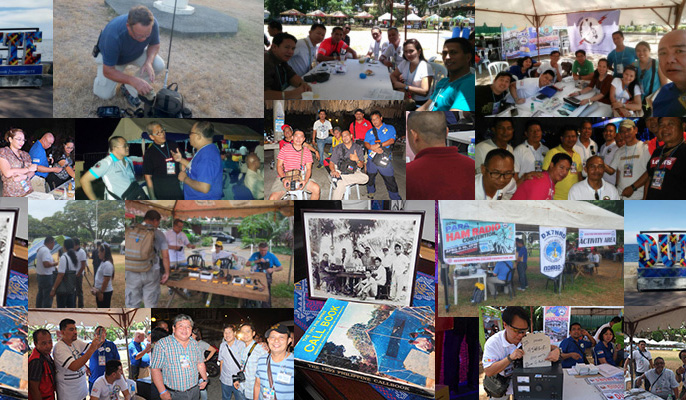Licenses
An Amateur Radio Station License (ARSL), together with a callsign, is issued to an individual who has passed the corresponding exam at the National Telecommunications Commission, and has existing radio equipment registered. Licenses are effective up to 3 years, and at the age of 60, a licensed amateur may avail of a lifetime license if he has been a Class A operator for at least 15 years.
A Radio Amateur Operator Certificate (RAOC), together with a callsign is issued to an individual who has passed the exam, but has no radio equipment registered.
License Class
Class A (Extra Class)
– has the highest privileges of all amateur licenses in the Philippines. Class A license holders are issued the call prefixes 4F or DU, and are able to legally operate at ALL bands prescribed by the National Telecommunications Commission. The applicant is required to pass a five word per minute (5WPM) morse code test, and Elements 8, 9, 10 of the written exam.
Class B (General Class)
- has the second highest privileges of all amateur licenses in the Philippines. Class B license holders are issued the call prefix DV, and are able to legally operate at MOST bands prescribed by the National Telecommunications Commission. The applicant is required to pass Elements 5, 6, 7 of the written exam.
Class C (Technician Class)
- Class C license holders are issued the call prefix DW, and are able to legally operate at SOME bands prescribed by the National Telecommunications Commission. The applicant is required to pass Elements 2, 3, 4 of the written exam.
Class D (Foundation Class)
- Class D license holders are issued the call prefix DY, and are able to legally operate at the VHF Band (144-146MHz), as prescribed by the National Telecommunications Commission. The applicant is required to pass Element 2 of the written exam.
Amateur Radio Operator License Examination
All amateur radio operators must thoroughly understand their responsibility to develop the skills that are needed to operate their station properly. The examination to be taken by an amateur radio operator will determine if they are qualified for the privileges provided by an Amateur Radio License.
